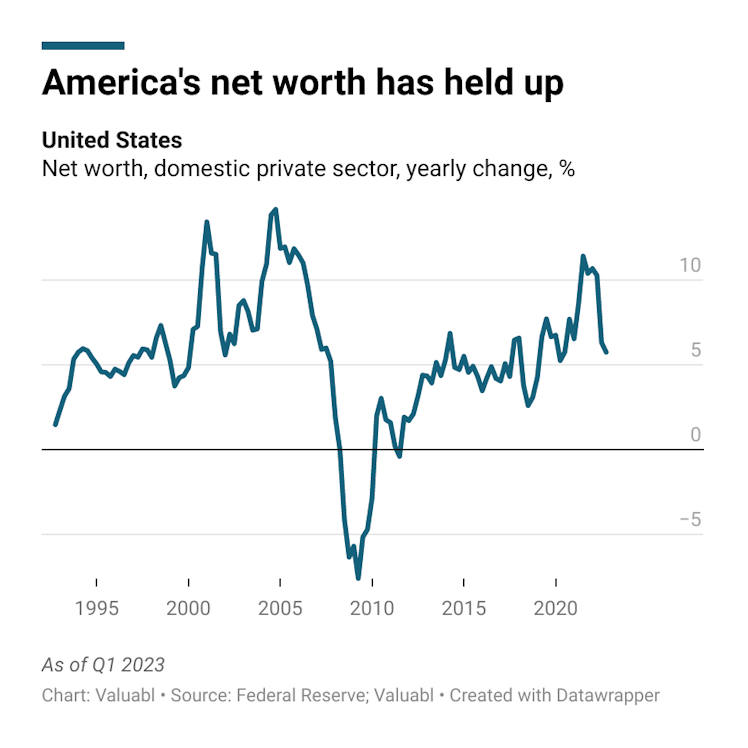Trending Assets
Top investors this month
Trending Assets
Top investors this month
Monetary mechanics, May 26th 2023
The economic forecast calls for thunderstorms. But there are few financial clouds on America’s horizon.
•••

“Shakespeare at a sunny American beach” by DALL•E
The financial world has braced for a slowdown. The Fed has raised rates at breakneck speed and has stopped bond purchases. If a recession hits America, pundits reckon profits will tank, and stocks will fall by a third. But if they're wrong, markets will continue their rise, and the nay-sayers will have missed out. Is the economy more potent than most expect? Yes, and a recession this year is unlikely.
First, rate hikes have stimulated, not snuffed, the economy. They have increased the government's interest bill and deficit. That means more money going into the private sector. Over the past year, the nation's interest payments have risen by a third to $1.2trn, an increase of 1% of GDP. Interest payments on government debt are now 4.5% of the nation's income. Unless it finances it with taxes, the deficit, the gap between government spending and taxes, goes up. That creates new money. With the deficit at 5% of national income already and set to increase, that's a lot of cash in the private sector's hands.
While we're still a ways off the interest bill hitting 6% of GDP, as it did in the '80s, higher rates mean increased refinancing costs. Once lawmakers raise the debt ceiling, the Treasury will issue new debt and refinance the old stuff at higher rates. That will increase the interest bill and stimulate demand more.
Second, the country’s net worth has risen despite higher rates, and the job market is robust. According to the Federal Reserve’s Flow of Funds report, the private sector is worth 6% more than a year ago. That is despite a slight drop in households’ net worth. Businesses have prospered while families are a little poorer in inflation-adjusted terms. The relative strength of corporate balance sheets helped. Higher interest rates pushed money into the economy and companies expanded.

Also, there are almost two job openings for every person looking for one—one of the highest rates on record. As households are poorer, but firms are richer, wages haven't had to rise despite the job market's imbalance. Companies feel rich, so aren’t under pressure to fill positions. Workers feel poorer, so are under pressure to work more. Unless business conditions worsen, unemployment will remain low, and the country’s net worth will continue to grow.
Third, bank lending is still strong, which supports spending. Businesses and landlords have continued to borrow at normal levels despite higher rates and bank failures. Landlords borrowed another 2% of GDP from banks in the past year and businesses another 1%. Banks have, in total, lent out another 5% of GDP in the past year. More interest income and higher net worths have kept credit demand alive. With banks continuing to lend and the private sector wanting those loans, spending and investment will continue to rise. When combined with the deficit, bank loans have helped the private sector's spending power grow by about 10% of GDP.
But traders think a recession is imminent. Long-term bond yields are lower than short-term ones—an inverted yield curve—and futures’ prices suggest rate cuts from November. Usually, these suggest bond and interest rate traders reckon a recession is coming. And they’ve been good forecasters in the past. But the market is wrong this time as it overestimates the tightening effect of the rate hikes. It has missed that at high public debt levels, rate hikes add to the deficit and stimulate the economy. That makes a recession and early rate cuts this year much less likely than usual.
Now is not the winter of our discontent.
Already have an account?